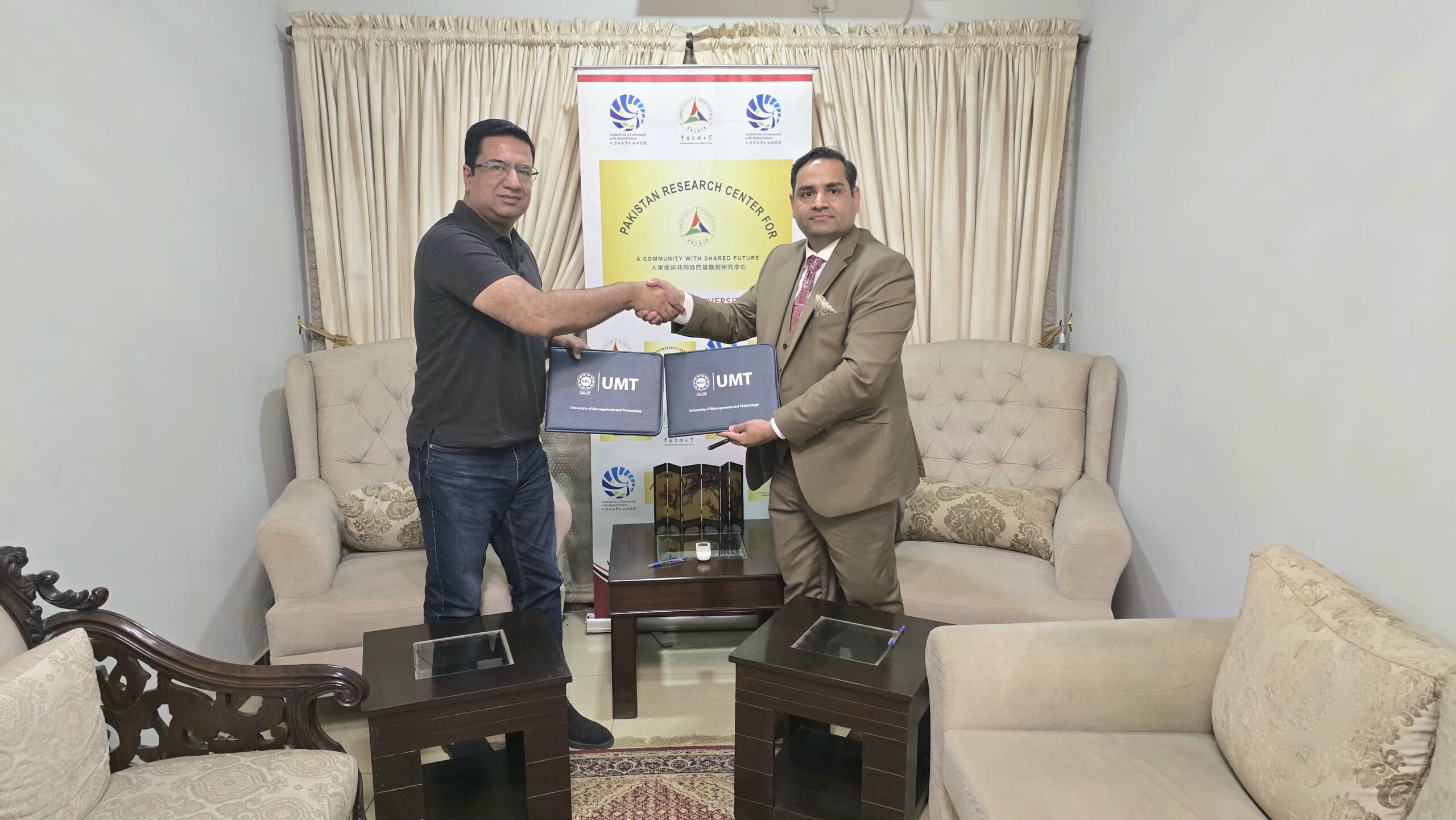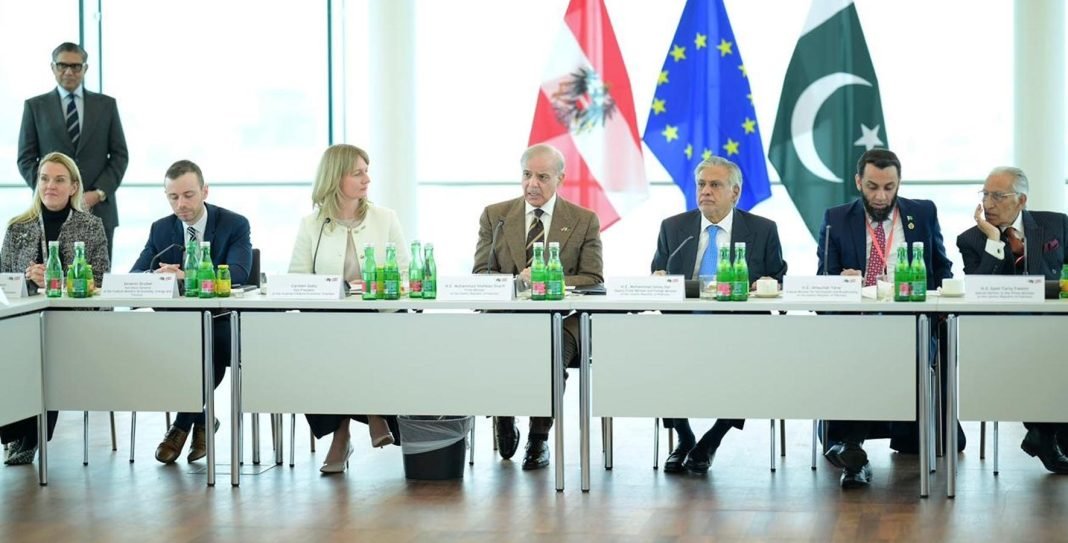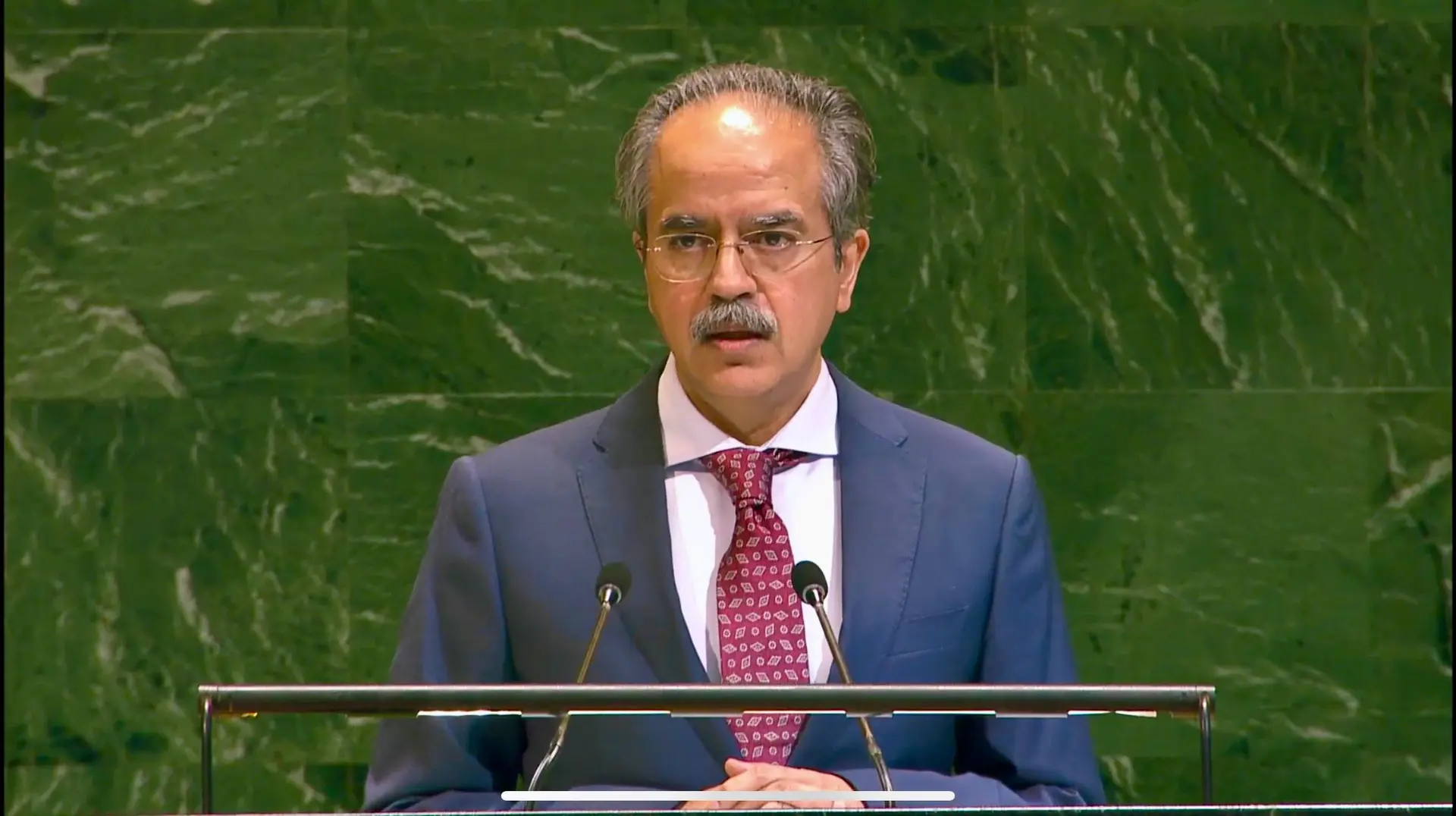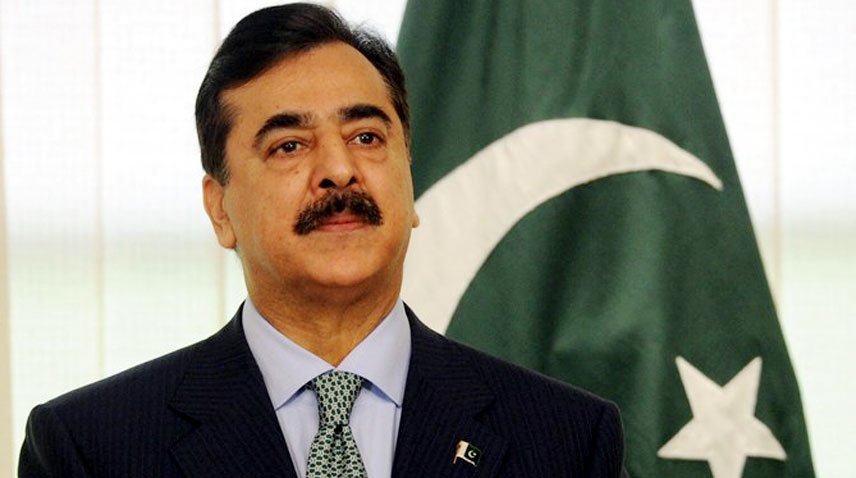Islamabad, May 19, 2025 – The Europe Today: Today, a delegation from the Department of Political Science and International Relations (DPSIR) at the University of Management and Technology (UMT), Lahore, embarked on a significant visit to the Pakistan Research Center for a Community with Shared Future (PRCCSF) in Islamabad. The delegation engaged in fruitful discussions with Mr. Khalid Taimur Akram, the Executive Director of PRCCSF, marking a pivotal step towards enhanced collaboration between the two institutions.
The UMT delegation was led by Dr. Muhammad Usman Askari, a distinguished academic who serves as both Associate Professor and Chairperson of Department of Political Science and International Relations (DPSIR) at the School of Social Sciences and Humanities (SSSH) at UMT, Lahore. Accompanying Dr. Askari were Dr. Sadaf and Mr. Hasnain, both esteemed members of the Department of Political Science and International Relations (DPSIR).
Dr. Askari’s extensive academic background, marked by over a decade of experience, includes an M.Phil. in Political Science and a Ph.D. in International Relations from the University of the Punjab, Lahore. His scholarly contributions are reflected in numerous publications in internationally recognized academic journals, underscoring his expertise in the field.
The Memorandum of Understanding (MOU) was also signed between Department of Political Science and International Relations (DPSIR), University of Management and Technology (UMT), Lahore and PRCCSF to collaborate on a range of initiatives.
This formal agreement signifies a deepened partnership and paves the way for joint endeavors aimed at advancing research and promoting academic exchange.
The MOU establishes a framework for collaborative initiatives, including joint research on topics such as international relations, strategic studies, peace and conflict studies, geopolitics, the blue economy, environment, climate change, and geostrategy. The agreement also promotes academic collaboration through joint publications, policy dialogues, conferences, seminars, workshops, and webinars. Furthermore, the MOU facilitates the exchange of academic materials, research data, and publications to support shared objectives, with the potential for expansion into other areas of mutual interest.













